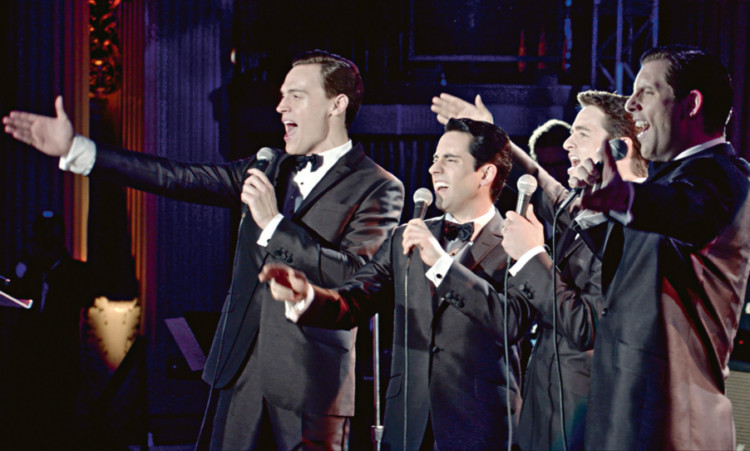
Big girls don’t cry but fans of The Four Seasons north of Watford can be forgiven for being a little upset.
Jersey Boys, the Tony Award-winning musical that tells of the forming of the iconic group led by Frankie Valli, came to London’s West End six-and-a-half years ago.
When it opened on Broadway, a tour of America followed the next year. But there’s never been a UK tour, meaning Four Seasons fans have had to make the trip to London to see the story of their favourites.
Now that’s about to change in a big way, with a theatre tour starting in September and, before that, a big screen version directed by Hollywood legend Clint Eastwood.
“I’ve always loved the music of The Four Seasons, so I knew it would be fun to revisit that,” says Eastwood.
“But what mainly interested me was how these semi-juvenile delinquents, who didn’t grow up under the best of circumstances, made it big.
“They were living on the periphery of the mob, pulling off petty crimes. Some had even done jail time. Then the music came and pulled them out. It gave them something to strive for.
“We know the songs, we know the sound, but few know the story that brought The Four Seasons together.
“Growing up on the wrong side of the tracks, Frankie Valli, Tommy DeVito and Nick Massi were desperate to use their musical gifts to give them a better life. Frankie told me that to be a singer in New Jersey in those years was hard.
“Just singing under the street lights, they endured a lot of ridicule…until they became a big hit, of course. But they had perseverance to get through that.”
Along with DeVito’s brother, Nick, and another bass player, Charles Calello, the ambitious musicians played clubs, bowling alleys and county fairs.
They played under 18 different names in the late ’50s, including The Lovers, The Romans, The Village Voices and Frankie Valley and the Travellers.
But they settled on a sound, a name and a definitive line-up when Valli and DeVito were introduced to songwriter Bob Gaudio (incidentally, by a young Joe Pesci).
Although very different in background from the others, Bob was in step with them when it came to making music.
Until The Beatles touched down at New York’s Kennedy Airport in February 1964, the newly-formed foursome could lay claim to being the biggest band in America.
Their hits, Sherry, Big Girls Don’t Cry and Walk Like A Man had given them an unprecedented three consecutive US No 1s. But with money and fame came new problems personal and professional they weren’t equipped to deal with.
Massi left the group in 1965 having grown disillusioned with touring (he was replaced by the returning Calello) and DeVito ran up huge debts that saw him forced to quit the group in 1970.
The story of their rise and fall has been a hit musical for nearly a decade, winning four Tony Awards, including Best Musical.
The UK tour kicks off in Manchester on Sept 4 before taking up a 17-day residence at the Edinburgh Playhouse (Oct 8-25) and the Sunderland Empire (November 25 – Dec 6). Eastwood borrowed heavily on the musical when casting his film.
All four band members have previously played their roles on stage including John Lloyd Young, who as Frankie Valli in the original Broadway version impressed all who saw him for successfully matching Frankie’s powerful falsetto voice.
Oscar-winner Christopher Walken is the cast’s star name, playing mob kingpin Gyp DeCarlo.
“I know audiences will come out of the theatre humming the songs and that’s great,” Eastwood concludes. “But I also hope they enjoy learning the story of where those songs come from and remembering the four young men whose legacy is still being felt today.”Further dates and venues have been announced for the UK tour of the Tony, Olivier and Grammy Award-winning Best Musical JERSEY BOYS, currently taking the tour through to August 2015, with further dates still to be added. The full schedule is available here:www.jerseyboysuktour.com

Enjoy the convenience of having The Sunday Post delivered as a digital ePaper straight to your smartphone, tablet or computer.
Subscribe for only £5.49 a month and enjoy all the benefits of the printed paper as a digital replica.
Subscribe